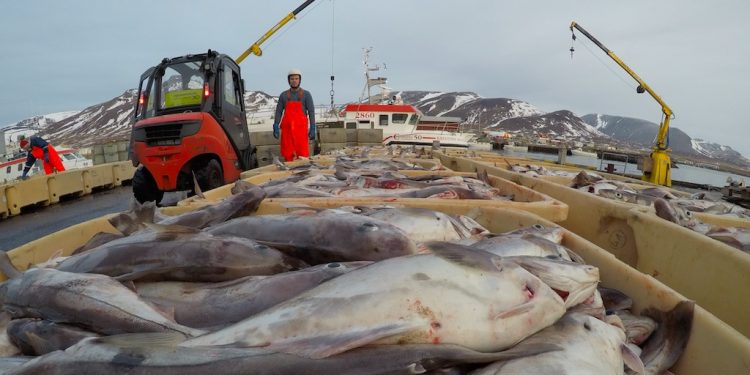The Marine and Freshwater Research Institute has published its advice for the 2022-23 quota year, which opens on 1st September.
The stinger in the next year’s advice is the recommendation that the 2022-23 quota for cod should be cut by 6% to 208,846 tonnes. According to the Institute, this advice is based on the management plan adopted by the Icelandic authorities and the reason for the reduction is a lower estimate of the reference biomass compared to previous years and the effect of the catch stabiliser in the harvest control rule.
The Institute reports that the reference biomass of cod is expected to increase slightly in the next two to three years when the 2019 and 2020 cohorts enter the reference biomass as they are estimated to be above average in terms of size.
According to industry body SFS, the reduction next year is 6%, but since the 272,411 tonne quota in 2019-20, cod quotas have been reduced by 23%.
‘Such a reduction in a short time presents challenges to the viability of the sector,’ an SFS representative commented, adding that the organisation nevertheless recommends that the Institute’s advice should be followed.
The advice is for a in increase in the haddock quota (23%), but reductions for saithe (-8%), golden redfish (-20%) and Icelandic summer-spawning herring (-8%). Advice for Greenland halibut remains unchanged.
SFS has responded to the Institute’s advice with concern, reiterating that it has long has concerns over the state of the Institute.
‘Changing environmental conditions and increasing market requirements have not reduced these concerns. This substantial reduction in monitoring commercial stocks in recent years is also cause for concern. Such cost-savings will only increase uncertainty. The conclusions announced today is a confirmation that there is strong basis for SFS’s concerns and there is urgent need for action to be taken,’ SFS states.
‘Fisheries companies will need to respond to these reductions and these will not be decisions that are easily taken. It is also clear that it has been shown that decisions on exploitation of stocks are best based on science, and that putting off dealing with the problem is not wise. But the long-term interests of the industry are best served by sustainable fisheries and there is no other option than to follow the scientific advice.’









